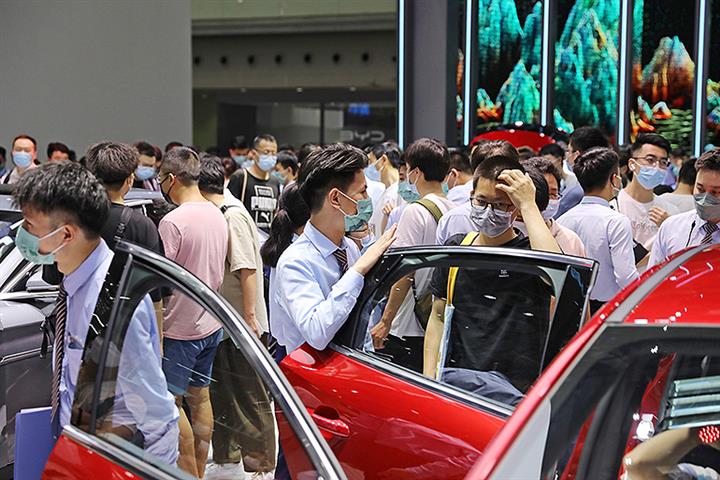 China’s Broader-Than-Expected Car Tax Cuts May U-Turn Year’s Sales to 4% Growth, Industry Body Chief Says
China’s Broader-Than-Expected Car Tax Cuts May U-Turn Year’s Sales to 4% Growth, Industry Body Chief Says(Yicai Global) June 1 -- China’s new purchase tax rebates on passenger vehicles apply to autos with an engine capacity of under two liters. The scope is wider than expected as previous tax cuts were limited to 1.6 liter engines and below and this could lead to a 4 percent increase in auto sales this year from the previous forecast of a 6 percent drop, the secretary-general of the China Passenger Car Association told Yicai Global.
The government has halved the tax levied on passenger vehicles costing up to CNY300,000 (USD44,850) and with an engine capacity of under two liters, the Ministry of Finance said yesterday, adding detail to the announcement made by the country’s cabinet last week that the country will be rolling out CNY60 billion (USD9 billion) worth of car purchase tax cuts. The policy takes effect from today until the end of the year.
The tax breaks could boost sales of passenger vehicles by two million autos this year to 21 million units, said Cui Dongshu. This would turn around the previous trajectory of a 6 percent year-on-year decline to 4 percent growth.
China has halved car taxes twice before, both times targeting small passenger cars with an engine capacity under 1.6 liter, and each time it had an immediate effect on sales. After the financial crisis in 2008, China’s auto sales growth slowed to 6.7 percent. The tax cut in January 2009 helped sales swell by 46.1 percent that year, according to data from the China Association of Automobile Manufacturers. And in 2016, after a second tax break in October 2015, sales jumped to 13.7 percent from 2015’s 4.7 percent.
By including more vehicle models, this round of tax reductions is likely to have an even bigger effect on sales, Cui said. It should hike demand for domestically produced autos, joint-venture models as well as some entry-level luxury cars, he added.
Some automakers are even subsidizing the cost of the remainder of the car purchase tax to jack up car sales. Customers of Chery Holding Group’s Jetour marque, Dongfeng-Nissan's joint venture as well as some Changan Automobile models will be charged zero car purchase tax, Yicai Global learned.
At present, China only taxes the purchase of fossil-fuel-powered cars, which is currently set at 10 percent. New energy vehicles have been exempt since 2014, although this waiver is due to expire at year end.
The return of Covid-19 this year has dealt a cruel blow to China’s car market, which only started to pick up last year after three straight years of losses. April sales cratered 47.6 percent from the year before to a 10-year low and shipments over the four months ended April 30 slumped 12.1 percent to 7.7 million units, according to CPCA.
Editors: Dou Shicong, Kim Taylor